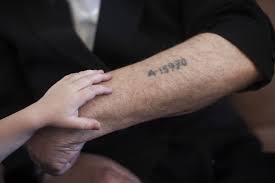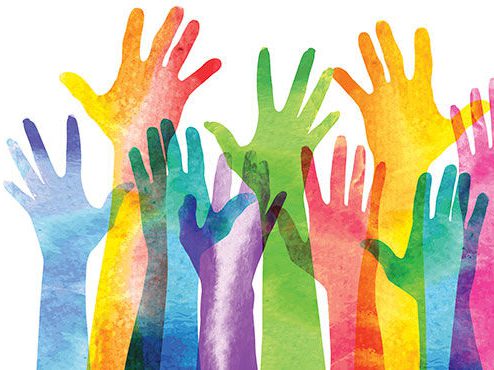Jews can be a superstitious people. Ashkenazi Jews tend not to name a child after someone who is living. God forbid – that might tempt the evil eye. Some Jews take a drop of wine from the havdalah cup and touch their head, pocket and heart to ensure wisdom, financial prosperity, and love. We also have a superstition around counting one another. Yet, long before Jewish population studies and the Pew Institute, God was ordering numerical accountings of the Jewish people. In this week’s parasha, God says: “ki tisa at rosh b’nei yisrael lifkudayhem” — when you take a census of the Israelite people according to their enrollment, each shall pay the Lord a ransom for themselves so that no plague may come upon them….This is what everyone who is enrolled shall pay: a half-shekel…. “(Ex. 30:12). The reason for the half-shekel payment is “so that no plague may come upon them.”
The half-shekel payment is meant to protect the Israelites, because the coins will be counted in place of the people directly. This answer hints at one reason behind the Jewish reluctance to count people: We ar e concerned about objectifying human beings, turning them into a commodity, something to be bought, sold or quantified. In assigning a number to a person we could start to think of people as numbers, and nothing more. But our tradition is teaching us that each person’s worth is beyond measure or any numerical value.
e concerned about objectifying human beings, turning them into a commodity, something to be bought, sold or quantified. In assigning a number to a person we could start to think of people as numbers, and nothing more. But our tradition is teaching us that each person’s worth is beyond measure or any numerical value.
Later in Tanakh, when King David takes a military census, he directly counts the Israelites and Judahites, and the result is disaster: 70,000 people die from a plague. As a reminder of that devastating experience, Jews still say the Tachanun prayer each day in morning and afternoon prayers, in which we recite King David’s words after he realizes his error: “I am in great distress” (II Sam. 24:14), he says. Tzar li m’od. One way to understand the plague in the time of King David is that God brought the pestilence to demonstrate a callous disregard for human life, just as a census also showed a disregard for individual human life and focused on quantity over the individual qualities of our people.
Nowadays, when we want to make sure that a minyan is present, instead of counting people directly, we often say, “not-one, not-two,” or “nisht-ein, nisht-tzvey,” or choose a 10-word Biblical verse, like this one from Psalms: “Hoshia (point after each word) et amecha uvarech et nachalatecha uraim v’nasem ad haolam (Psalm 28:9)—Save your people and bless Your inheritance; tend them and sustain them forever.” When we count people with words of Torah, in effect we are telling them: You embody a sacred word of Torah. (point) You are “hosheah” (save), you are “uvarech” (bless), you are “nachalatecha” (inheritance). You yourself are an invaluable, irreplaceable living word of God. This reminds us of the famous saying of the Baal Shem Tov, the founder of Hasidism, who taught that the Jewish people constitutes a living Sefer Torah, and each of us is a letter in the scroll, an essential part of the whole.
According to the Talmud in Tractate Yoma, it is forbidden to count Jews directly even for the sake of a mitzvah. Rabbi Elazar cites as textual support for this prohibition a verse from Hosea, “And the number of the children of Israel will be like the sand of the sea, which cannot be measured and cannot be counted” (Hosea 2:11) (Yoma 22b). In other words, Israel’s greatness cannot be reduced to a quantifiable number — certainly not the number of soldiers or weapons it possesses, or even population size. It is not our physical size or material might that defines us as a people, but our moral qualities and spiritual values, especially our commitment to life, that illustrate who we are.
So when we read in Parashat Ki Tisa about the census and giving of a half-shekel, let’s think of the Jewish prohibition of counting people, and try to remember the deep moral message behind the superstition. It represents a sacred Jewish value: the immeasurable worth of every individual. It teaches us that human beings are not numbers and must never be considered mere commodities. It reminds us that the true measure of a people goes far beyond its numerical size. And our practice of counting one another through words of Torah teaches we are each sacred. Every human being is unique and precious, and none of us is replaceable.
